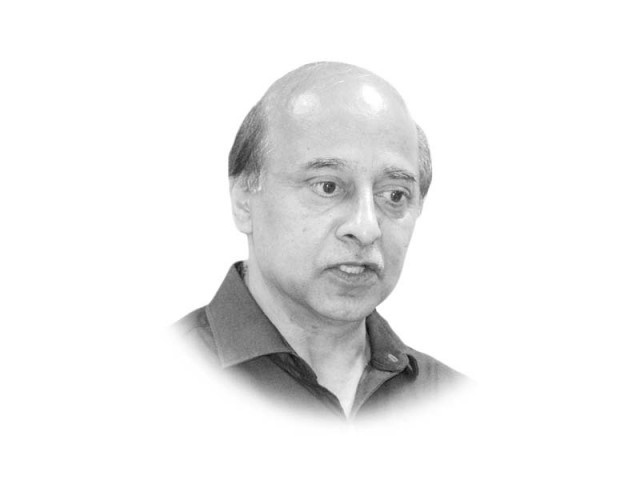Police and political commitment
One must bear in mind; a couple of years cannot rub off ingrained corrupt mindsets

The writer heads the independent Centre for Research and Security Studies, Islamabad and is author of Pakistan: Pivot of Hizbut Tahrir’s Global Caliphate
The police in Punjab remains firmly under the CM as organised crime continues to thrive proportionate to billions of rupees that the provincial government spends on law enforcement.
Data for the first 11 months of 2016 suggests that extortion cases have increased by a whopping 43 per cent while cases car-jackings and kidnappings are up by 29 per cent and 13 per cent, compared to the year 2015.
Balochistan is a different story altogether, abundantly commented upon also in the Quetta Enquiry Commission report — an aberration that needs to be fixed.
Why does the police in Punjab, Sindh remain controversial, corrupt and deemed as partners with the politically patronised criminal syndicates? Is it the outdated 1861 Police Act (Sindh and Balochistan) and the Police Order 2002 (Punjab) that continue to be the guiding framework for the police in these provinces? Or political reluctance to let the police function independently as a professional force? Or missing accountability mechanisms that encourage police officials to exploit even the victims?
Probably a combination of all the aforementioned factors. Socio conditions in K-P are not different either. Nor is the police there immune to the lure of alliances with organised crime. But the last three years have seen structural changes, motivated by an operational autonomy, political non-interference and institutional commitment — all reflected in the K-P Police Ordinance 2016. The Ordinance grants the IG Police autonomy over postings, transfers, tenures, promotions and accountability of mid to senior level police officers. It empowers the Public Safety Commissions and the regional authorities to keep a check on the police officers. It delinks the police from bureaucracy in both the accountability and policy decision-making. It sets new principles of authority in tandem with accountability. The law separates investigation from operations.It also makes internal accountability an integral component of the police. All this is not a mean achievement for a province battered by decades of conflict and mauled by misgovernance of the civilian-military ruling elites, socially ruined by proponents of extremist religiously ideologies, politically victimised by Islamabad, and held back by an obsolete 1860 Criminal Procedure Code (CcPC).
IG Nasir Durrani has also been instrumental in instituting Dispute Resolution Councils as a quick means of justice; until August 2016 the DRC received 4,808 cases settling 76 per cent issues on the spot. Only about 680 or 14 per cent of the cases were referred for legal action. These statistics stand out as the best testimony for a speedy community-based alternative dispute resolution mechanism.
The system is not without flaws. But one must bear in mind; a couple of years cannot rub off ingrained corrupt mindsets. Majority of Pakistanis look for short-cuts and try to circumvent laws. Most would talk of merit and rule of law but wouldn’t apply the same to themselves. But, as the developments in K-P underline, overcoming these socio-political barriers and professionally operating the police is not impossible.
However, as long as the 1860 CrPC and 1861 Police Act remain the primary source of the criminal justice system, taking on and neutralising the challenges to the state authority i.e. organised crime, religious militancy and terrorism, will remain a formidable challenge to the often Rule-of-Law paradigm in Pakistan.
Published in The Express Tribune, December 21st, 2016.
Like Opinion & Editorial on Facebook, follow @ETOpEd on Twitter to receive all updates on all our daily pieces.















COMMENTS
Comments are moderated and generally will be posted if they are on-topic and not abusive.
For more information, please see our Comments FAQ